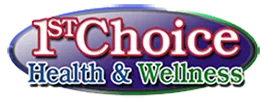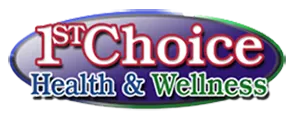Exploring Non-Surgical Avenues: 6 Alternative Treatments for Relieving A Herniated Disc

- posted: Mar. 05, 2024
Herniated discs can be a source of persistent pain and discomfort, leading many individuals to explore alternative treatments before considering surgery. In this comprehensive guide, we delve into a range of non-surgical options that have shown promise in alleviating symptoms associated with herniated discs. From spinal decompression to acupuncture and cold laser therapy, discover alternative paths to recovery that may help you avoid the operating room while promoting holistic healing.
1. Spinal Decompression: Unlocking Relief Through Gentle Traction
Spinal decompression therapy is a non-invasive treatment designed to relieve pressure on the spinal discs. It operates on the principle of creating gentle traction, aiming to increase the space between vertebrae. This increase in space may reduce the pressure on herniated or bulging discs, subsequently relieving symptoms associated with nerve compression. Studies have shown that spinal decompression therapy can be effective in reducing pain and improving function in individuals with herniated discs.
How It Works:
The process of spinal decompression works by elongating the spine, which can create a negative pressure within the disc. This negative pressure may facilitate the retraction of herniated or bulging material, reducing compression on spinal nerves. Studies suggest that spinal decompression therapy may provide relief for certain individuals with herniated discs, offering a non-surgical option for managing symptoms.
Considerations:
Individuals considering spinal decompression should seek professional guidance from a qualified local healthcare provider. While it has shown promise for many, it may not be suitable for everyone. Factors such as the severity of the herniation, overall health, and the presence of other spinal conditions should be taken into account when exploring this treatment option.
2. Chiropractic Care: Aligning the Spine for Disc Wellness
The Basics On Chiropractic Care:
Chiropractic care revolves around the manual manipulation of the spine to improve alignment and function. Skilled chiropractors use precise adjustments to correct misalignments (subluxations) and promote optimal spinal health. In the context of herniated discs, chiropractic adjustments aim to alleviate pressure on affected discs and restore balance to the spine. According to the National Center for Complementary and Integrative Health (NCCIH), spinal manipulation, a key technique in chiropractic care, has been associated with pain relief for some individuals with chronic lower back pain
Techniques and Approaches:
Chiropractors employ various techniques, including spinal adjustments, mobilization, and soft tissue therapies. These adjustments may involve controlled force applied to specific joints, providing relief from pain and promoting natural healing. Understanding the specific techniques used in chiropractic care helps individuals make informed decisions about incorporating it into their herniated disc treatment plan.
Contributions to Overall Spinal Health:
Beyond addressing immediate concerns related to herniated discs, chiropractic care contributes to overall spinal health. By maintaining proper alignment, chiropractic adjustments support the body's natural healing processes, potentially reducing the likelihood of future disc issues and enhancing overall well-being.
3. Physical Therapy: Tailored Exercises for Herniated Disc Rehabilitation
Role of Physical Therapy in Herniated Disc Recovery:
Physical therapy is a cornerstone in the non-surgical management of herniated discs. Therapists design customized exercise regimens to address specific symptoms, improve flexibility, and strengthen supporting muscles. The goal is to enhance overall spinal stability and function. Research has shown the incorporation of physical therapy into herniated disc treatment plans is effective in improving strength and flexibility.
Targeted Exercises and Stretches:
Physical therapists may recommend a variety of exercises and stretches tailored to the individual's condition. Core-strengthening exercises, such as planks and bridges, aim to provide stability to the spine. Specific stretches may focus on increasing flexibility and reducing muscle tension around the affected area.
Holistic Approach to Rehabilitation:
Beyond exercises, physical therapy encompasses a holistic approach that may include manual therapy, education on proper body mechanics, and lifestyle modifications. This comprehensive strategy aims not only to alleviate current symptoms but also to empower individuals with tools for long-term spinal health.
4.Exercise & Lifestyle Regimens: Building a Strong Foundation for Disc Health
Importance of Regular Exercise:
Incorporating a consistent exercise routine is crucial for individuals with herniated discs. Exercise promotes blood flow, strengthens muscles, and improves overall flexibility, contributing to a strong foundation for disc health.
Core-Strengthening Exercises:
Core strength is particularly vital for supporting the spine. Core exercises such as abdominal crunches, leg raises, and stability ball exercises can help individuals build a robust core, reducing the strain on the spinal discs.
Gentle Stretches for Flexibility:
Gentle stretches, including cat-cow stretches, child's pose, and knee-to-chest stretches, can enhance flexibility and relieve tension in the back. These stretches contribute to improved range of motion and may alleviate discomfort associated with herniated discs.
Incorporating Exercise into Daily Life:
Beyond structured exercise routines, individuals are encouraged to incorporate movement into their daily lives. Avoiding prolonged periods of inactivity, adopting good posture habits, and taking breaks to stretch throughout the day contribute to ongoing spinal health.
5. Acupuncture
Principles of Acupuncture:
Acupuncture, rooted in traditional Chinese medicine, involves the insertion of thin needles into specific points on the body. The practice is based on the concept of balancing the body's vital energy, known as qi, and stimulating natural healing responses.
Acupuncture for Herniated Discs:
For individuals with herniated discs, acupuncture may offer relief by promoting the release of endorphins and reducing inflammation. The insertion of needles at targeted points may also help alleviate muscle tension and improve blood circulation around the affected area.
Holistic Healing and Wellness:
Acupuncture is not only focused on symptom relief but also on promoting overall well-being. By addressing the body's energy flow, acupuncture aligns with a holistic approach to health, potentially contributing to a sense of balance and reduced discomfort for individuals with herniated discs.
6. Cold Laser Therapy: The Path to Pain Reduction
Principles of Cold Laser Therapy:
Cold laser therapy, also known as low-level laser therapy (LLLT), involves the application of low-intensity laser light to stimulate cellular activity. This non-invasive treatment aims to promote healing at the cellular level and reduce inflammation.
Cellular Effects and Pain Reduction:
The low-level laser light used in this therapy penetrates the skin and interacts with cellular structures. This interaction may enhance cellular function, accelerate tissue repair, and reduce inflammation, contributing to pain reduction for individuals with herniated discs.
Applicability in Herniated Disc Treatment:
Cold laser therapy is being explored as a complementary treatment for various musculoskeletal conditions, including herniated discs. While research is ongoing, some studies suggest potential benefits in terms of pain relief and improved function.
Transform Your Well-being: Secure Your Appointment Today At Our New Albany Clinic for Trusted Herniated Disc Care!
If you're tired of living with the discomfort of a herniated disc back pain, our team at 1st Choice Health & Wellness in New Albany, IN, is ready to guide you towards relief. Call (812) 945-4500 to schedule your personalized appointment and take the first step towards a pain-free future! Whether you're in New Albany, Jeffersonville, Louisville, Clarksville, or surrounding areas, we are here to provide the exceptional care you deserve. Let us guide you towards a pain-free, healthier, happier you!
Location
Find us on the map
1st Choice Health & Wellness
2441 State St #10
New Albany, IN 47150
Hours of Operation
9:00 am - 12:00 pm
2:00 pm - 6:00 pm
2:00 pm - 6:00 pm
9:00 am - 12:00 pm
2:00 pm - 6:00 pm
9:00 am - 12:00 pm
2:00 pm - 6:00 pm
9:00 am - 1:00 pm
Closed
Closed

